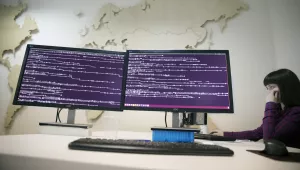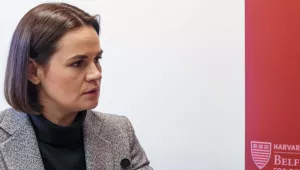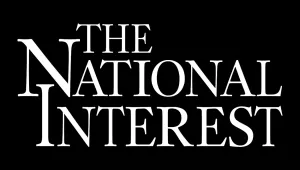Your search did not return any results. Please try another search.
by Svenja Kirsch
Article
from
Belfer Center for Science and International Affairs, Harvard Kennedy School
May 2023
by Svenja Kirsch and Bethan Saunders
Reports & Papers
from
Belfer Center for Science and International Affairs, Harvard Kennedy School

AP Photo/Pavel Golovkin
In The News
from
The National Interest
by Svenja Kirsch
Article
from
Belfer Center for Science and International Affairs

Liz Hoveland
January 2023
by Svenja Kirsch
Reports & Papers
from
Belfer Center for Science and International Affairs, Harvard Kennedy School

AP Photo/Michael Probst






